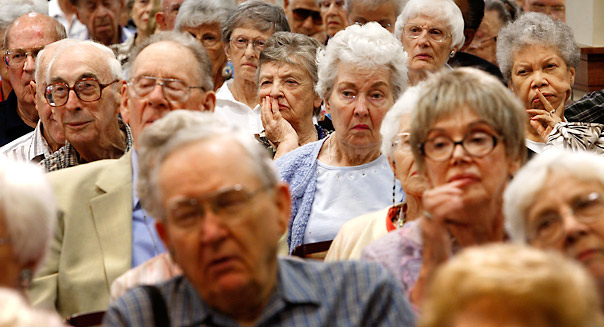
Is an ageing population a bad thing?
by Christian Mcloughlin
Nowadays much is made of the UK’s ageing population. In 2016 in the UK, 18% of people were aged 65 and over, and 2.4% were aged 85 and over. The Old-Age Dependency Ratio (OADR) is also increasing. The Office for National Statistics (ONS) defines the OADR as “the number of people over 65 years old for every 1,000 people aged between 16 and 64 years old – in mid-2016 the UK’s OADR was 285.”
Indeed, having an ageing population does have its negatives. For instance, an ageing population increases the dependency ratio and means that the government has to pay more in benefits to people who often do not have the ability to pump money back into the economy. However, there are also positives from having an ageing population, and in this blog post, I will attempt to set out some of these.
Firstly, having an ageing population doesn’t necessarily mean that the economy will suffer. Indeed, an article from the organisation Age International points out that in urban areas, many older men and women remain employed in the formal labour market. The article suggests that half of those in their 60s in the Philippines and Vietnam; 40 per cent in Mexico and Brazil and one third in India and Thailand remain employed in the formal labour market. It could be argued that these facts are born out of necessity rather than by choice, considering the pension schemes and average wages are not as good as the UK’s. However, the fact that they are continuing to work means that younger generations can learn from the elderly people’s experience in the job sector. The elderly continuing to work can also counteract other issues such as boredom and loneliness which are prevalent in many countries, including the UK.
It could also be argued that the elderly play a crucial role in the development of the younger generations. As Sarah Harper highlights it, “Crucially, older adults also free up the time of younger people from household responsibilities, enabling them to undertake paid labour.”Particularly in LEDCs, there are far fewer opportunities for young people to engage in higher education and this limits potential career paths. By being present, the elderly can do the more mundane, but still essential tasks, and allow the youth of the household to pursue better education and better jobs. Japan is a classic example of a country with an ageing population. Between, 2002 and 2007, the unemployment rate of 15 to 24-year olds fell to 7.7% from 9.9%. Although the article which I extracted this information goes on to suggest that long-term unemployment in this age demographic was still an issue, the fact that the short-term unemployment rate fell highlights that having an ageing population can provide more opportunities for employment.
Finally, continuing the theme of the elderly undertaking jobs for the younger generations, older men and women can be used as primary caregivers for many children. Particularly in MEDCs, like the UK and USA, grandparents can play vital roles in providing free childcare for working parents who might not be able to afford paid childcare. As suggested by Brandon Gaille, “across the United States, more than 13 million children are living in homes with their grandparents.” This allows the parents to continue working and contributing to the economy. It also has the effect of improving the children’s quality of life since more money can be spent on other necessities such as better food and clothing since it isn’t being spent on healthcare.
The idea of having an ageing population is often something that scares people. However, realistically they provide good services for many and it could be argued that it is a positive more than a negative.

Ageing population are bad for all species. Medical advances both for humans and for animals mean people are being kept alive without any thought of quality life. Too many old people live alone, far from family who had to move away for work. Too many are abandoned in residential homes never seeing family and separated from their pets who were there family. I’ve met many old people where my dad was placed (I visited him daily as I’d done since he retired) who were just waiting to die. Some got frequent visits from family others it was once a month/2months/a year or never. The staff did their best but no one can replace a son/daughter. I was fortunate to live close to my parents and also suffering ill health (I have MS) so I saw when their health deteriorated and needed a little help here or there. My dad went into a residential when he needed 24 hr care which I couldn’t provide. My sons had helped me with their care then they started work and moved away.
Do people need to move away so their caring for elderly relatives doesn’t get in the way of their career? Discuss